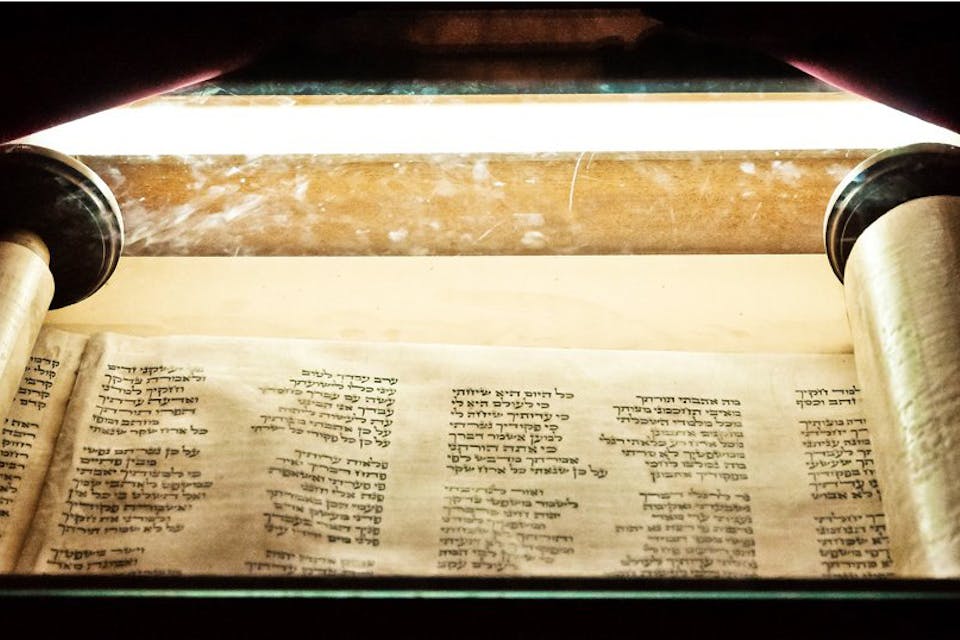
June 22, 2016
How the Books of the Hebrew Bible Got Their Names
By PhilologosSome are named for their first word, others for their first significant word. What about the rest?
Got a question for Philologos? Ask him directly at philologos@mosaicmagazine.com.
Shlomo Karni writes to ask me to “correct the error, . . . too common, sadly, in our midst” that the Hebrew name of the fourth of the Five Books of Moses, currently being read in weekly installments (or parashot) in synagogues everywhere, is Bamidbar. Rather, writes Mr. Karni, it should be B’midbar, in accordance with the rule that biblical books are named in Hebrew for “the first significant word of each book—e.g., B’reyshit for Genesis, Sh’mot for Exodus, Vayikra for Leviticus, Mishley for Proverbs, and so on.”
Mr. Karni is right on several counts. The first verse of the book of Numbers, the Pentateuch’s fourth, is “And the Lord spoke to Moses in the desert of Sinai,” and “in the desert of Sinai” in Hebrew is b’midbar Sinai, with the proclitic consonant bet, “in” or “on,” followed by a shva or short “uh” vowel. This is because b’midbar, “in the desert,” is in the possessive case: in the desert of Sinai. If one were to say “in the desert” unpossessively, one would say bamidbar, with a pataḥ or “ah” vowel after the bet. This is indeed, as Mr. Karni observes, how Jews refer to Numbers, and the reason they do so is obvious. Since in Hebrew the book is called “In the Desert” rather than “In the Desert of Sinai,” the Hebrew-speaking tongue instinctively changes the shva following the bet to a pataḥ.